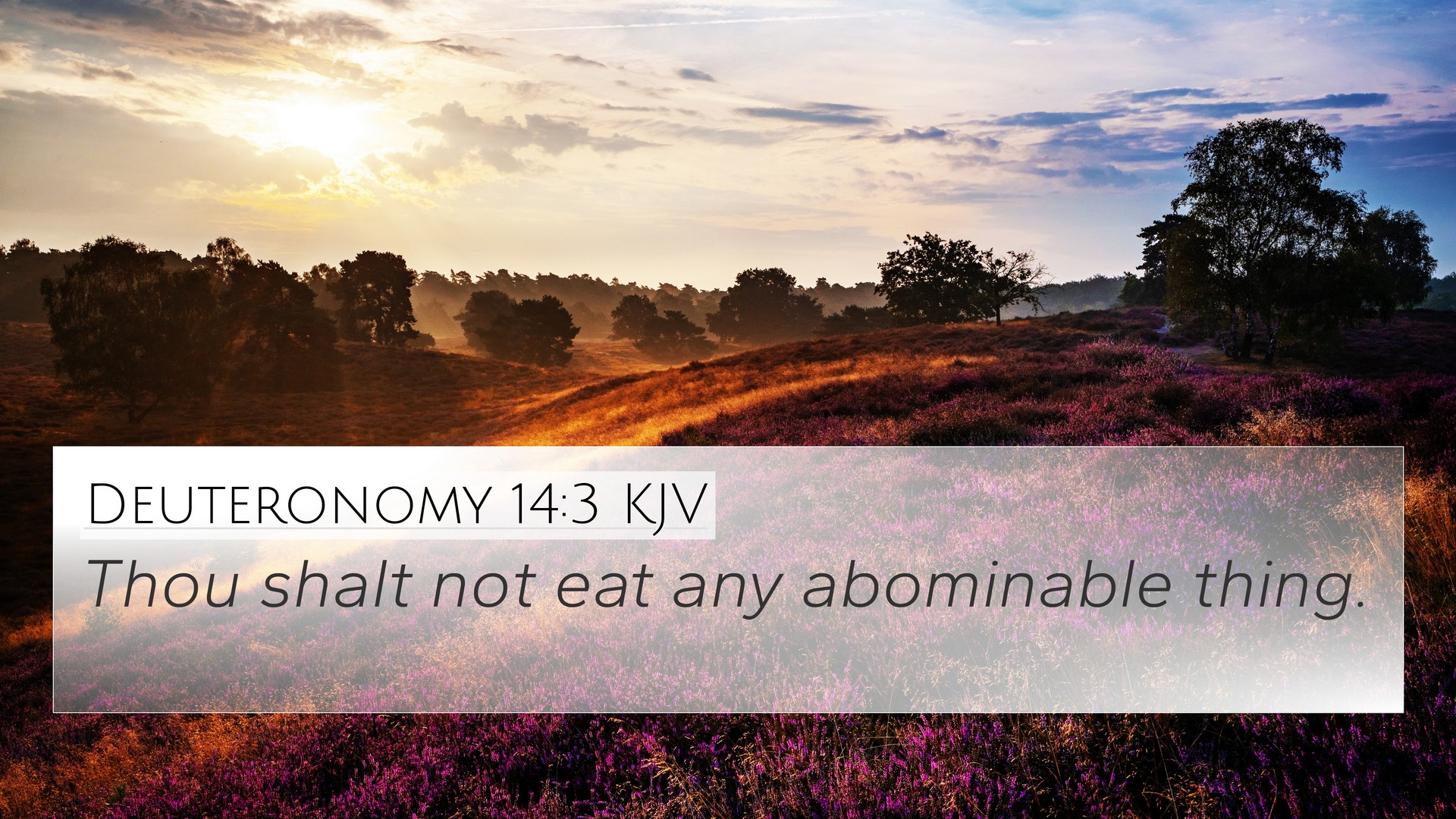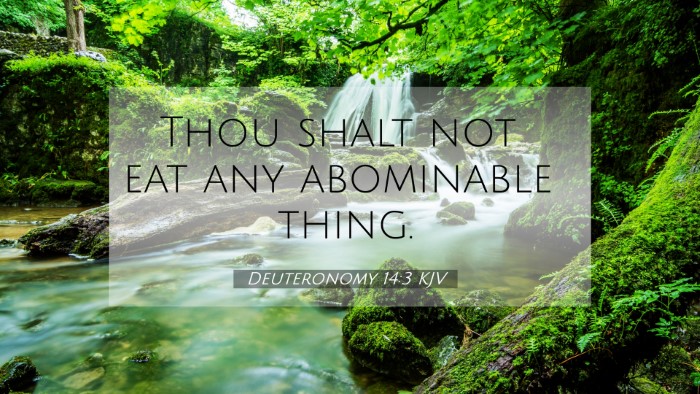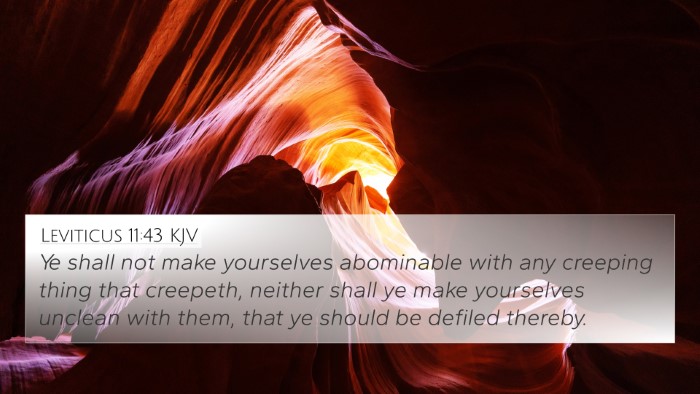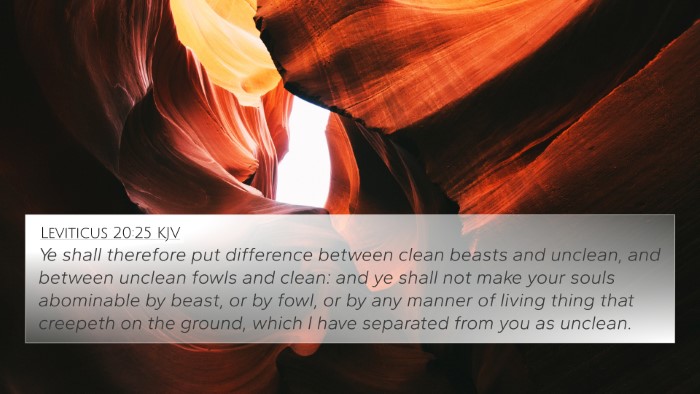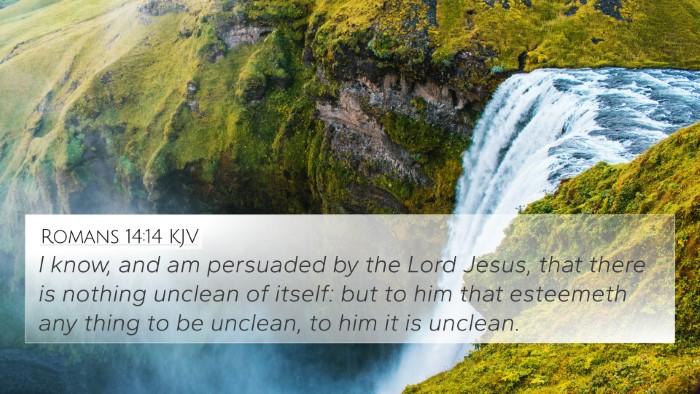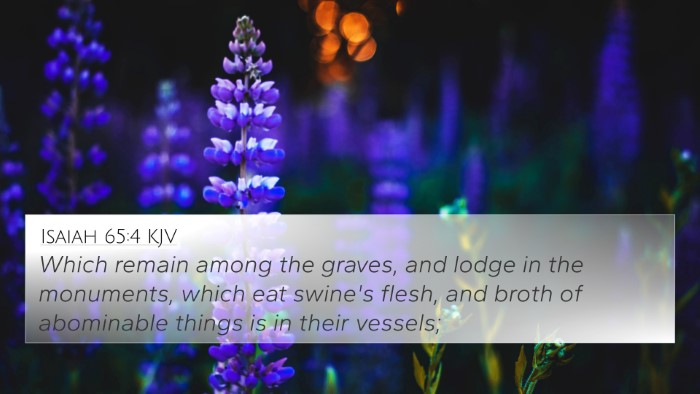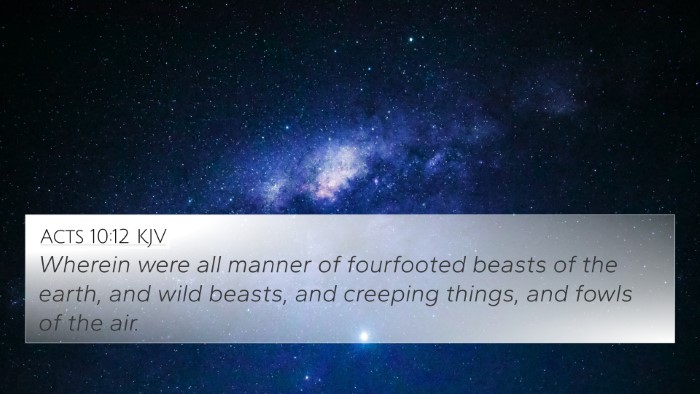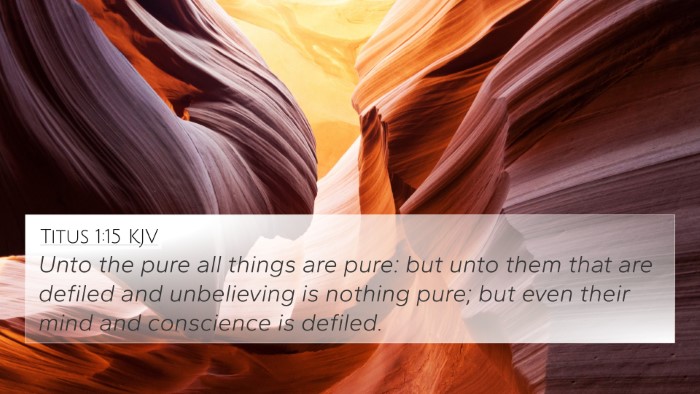Deuteronomy 14:3 - Summary and Interpretation
Bible Verse: Deuteronomy 14:3 - "Thou shalt not eat any abominable thing."
Verse Meaning and Context
Deuteronomy 14:3 serves as a crucial regulation within the broader context of the Mosaic Law concerning dietary restrictions commanded for the Israelites. This particular verse outlines God's directive aimed at ensuring the holiness and separation of His people from the surrounding nations.
Insights from Public Domain Commentaries
-
Matthew Henry:
Henry emphasizes the call to holiness and purity. He suggests that God's laws, including the dietary ones, were intended to foster an exclusive relationship between God and His people. By avoiding abominable foods, the Israelites were to remain distinct and demonstrate integrity in their covenant loyalty.
-
Albert Barnes:
Barnes highlights the significance of this command in establishing the identity of the Israelites. This dietary law not only served practical health measures but also symbolized their devotion to God's commands. It was a means of strengthening their connection with God through obedience.
-
Adam Clarke:
Clarke delves into the specifics of what constituted "abominable" creatures, providing insights into the classifications of clean and unclean animals. He points out that these prohibitions arguably had implications for both spiritual and physical sanctity, reinforcing the theological importance of such distinctions.
Thematic Connections
This verse invites further exploration through cross-referencing relevant biblical passages. Here are some connections that enhance the understanding of Deuteronomy 14:3:
- Leviticus 11:1-47: Provides comprehensive dietary laws detailing clean and unclean animals.
- 1 Peter 1:16: “Be ye holy; for I am holy.” This New Testament principle echoes the call to purity originating in the Law.
- Isaiah 66:17: Condemns those who eat swine's flesh, reinforcing the separation requested by God.
- Romans 12:1-2: Invites believers to present their bodies as living sacrifices, paralleling the call for holiness.
- Mark 7:18-19: Jesus discusses what enters a man and the heart of dietary laws, bridging Old Testament practices with New Testament revelations.
- Acts 10:14: Peter's vision of clean and unclean animals illustrates a pivotal shift in understanding these laws for believers.
- Hebrews 10:1: Discusses the law as a shadow of good things to come, indicating a transition from ceremonial laws to spiritual truths.
Practical Applications and Biblical Cross-Referencing
Understanding Deuteronomy 14:3 paves the way for engaging in comprehensive Bible study that employs cross-referencing. Here are some tools and methods for effective thematic Bible study:
- Bible Concordance: A useful resource for locating words and references quickly throughout scripture.
- Bible Cross-Reference Guide: Essential for finding connections between verses that share themes and concepts.
- Cross-Reference Bible Study: Encourages deeper investigation into how different scriptures illuminate one another.
- Bible Chain References: A method of following a series of interconnected verses that build upon a single theme or concept.
- Comprehensive Bible Cross-Reference Materials: Includes commentaries, study Bibles, and thematic resources that aid in cross-referencing.
Conclusion
In examining Deuteronomy 14:3, we recognize the importance of separating oneself from practices deemed abominable in God's eyes. The command not only reflects dietary laws but also symbolizes a deeper spiritual truth about holiness and the unique identity of God's people. Through diligent cross-referencing and thematic connections, one can better appreciate and understand the implications of this verse within the wider biblical narrative.
